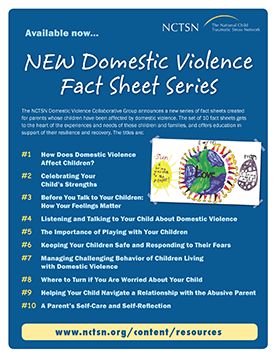
Children and Domestic Violence for Parents Fact Sheet Series
Offers support to parents whose children have been affected by domestic violence. This fact sheet series provides education to support their resilience and recovery.
The following resources on child trauma were developed by the NCTSN. To find a specific topic or resource, enter keywords in the search box, or filter by resource type, trauma type, language, or audience.

Offers support to parents whose children have been affected by domestic violence. This fact sheet series provides education to support their resilience and recovery.
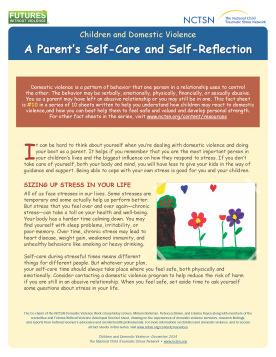
Provides ideas about self-care for parents impacted by domestic violence. This fact sheet points out how stress can affect parents and provides suggestions on how to deal with that stress.
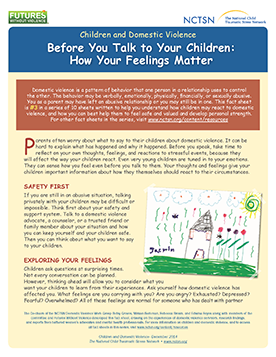
Provides parents information on how to talk to children about domestic violence. This fact sheet discusses the importance of recognizing and dealing with one's own feelings before talking to children.
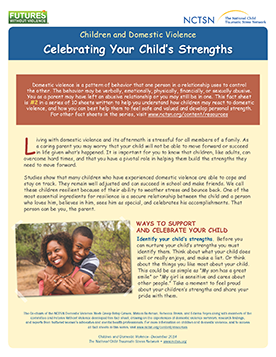
Provides information on how to talk to children about domestic violence. This fact sheet helps you understand how children may react to domestic violence, and how to best help them feel safe and valued, and develop personal strength.
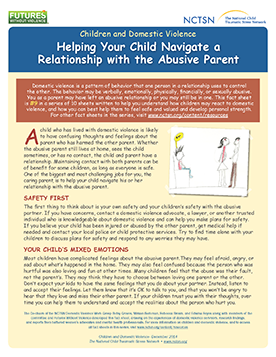
Provides parents information on how to talk to children about domestic violence. This fact sheet discusses how to help a child navigate a relationship with an abusive parent.
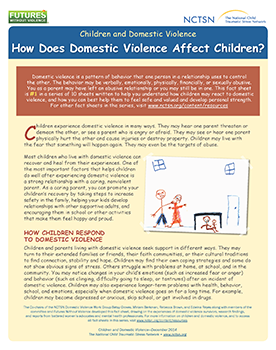
Provides parents with information on how to talk to children about domestic violence. This fact sheet discusses how domestic violence can affect children.
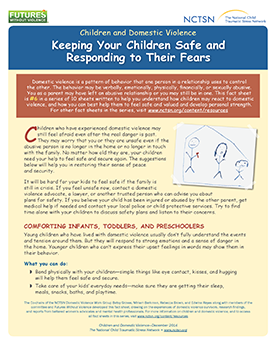
Provides parents with information on how to talk to children about domestic violence. This fact sheet discusses how to keep children safe and respond to their fears.
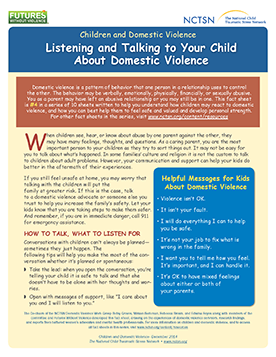
Provides parents with information on how to talk to children about domestic violence. This fact sheet discusses the importance of listening and talking to children about domestic violence.
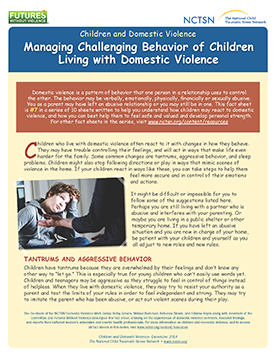
Provides parents information on how to talk to children about domestic violence. This fact sheet discusses how to manage challenging behavior in children living in domestic violence situations.
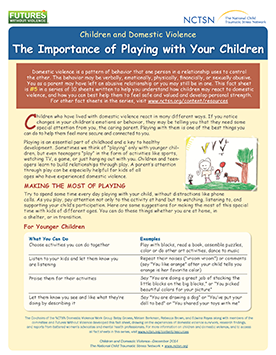
Provides parents with information on how to talk to children about domestic violence. This fact sheet discusses the importance of playing with children exposed to domestic violence.
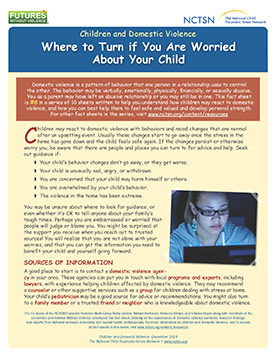
Provides parents with information on how to talk to children about domestic violence. This fact sheet discusses where parents can turn if they are worried about their child.
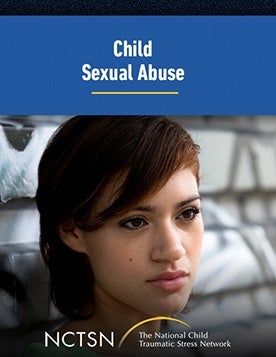
Discusses sexual assault that occurs within the context of ongoing relationships and those that occur in a one-time interaction (e.g., at a party, among casual acquaintances, friends who are not in an ongoing intimate/romantic relationship).